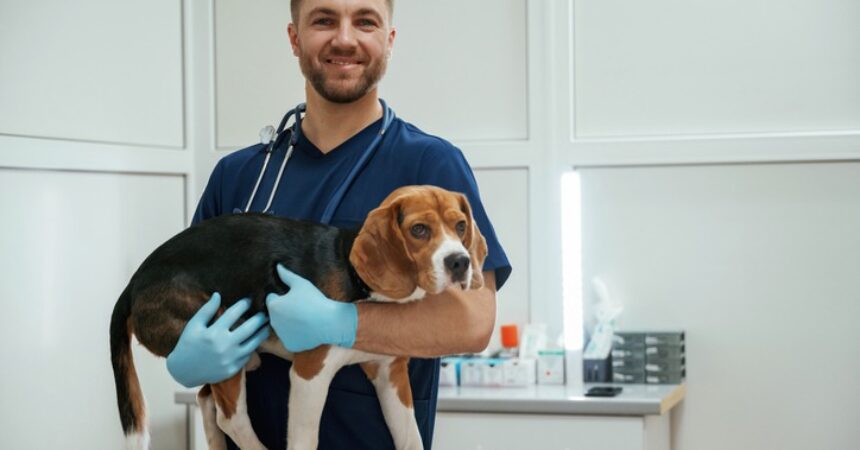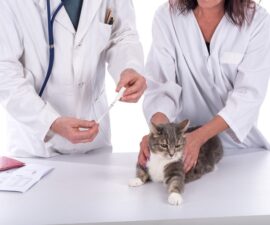As our beloved pets age, their healthcare needs change, requiring specialized attention and tailored services. Ensuring the best vet services for senior pets is essential to maintaining their quality of life, detecting age-related issues early, and managing chronic conditions effectively. This involves finding veterinary professionals experienced in geriatric pet care and offering comprehensive wellness plans, pain management options, and advanced diagnostic tools. By understanding what to look for, we can provide the best care for our aging animal companions.
The best vet services for senior pets focus on comprehensive health assessments, preventive care, and management of age-related conditions. Here’s a detailed look at the best veterinary services and treatments for senior pets:
1. Comprehensive Geriatric Health Exams
Regular geriatric health exams are essential for senior pets to monitor and manage age-related changes. These exams typically include a thorough physical examination, a review of the pet’s medical history, and assessments of vital signs. Geriatric cat care specialists will evaluate the pet’s weight, mobility, dental health, and organ function. Regular exams help detect issues early, such as arthritis, heart disease, or kidney dysfunction, allowing for timely intervention and management.
2. Blood Work and Diagnostic Testing
Blood work and diagnostic testing are crucial for identifying underlying health conditions in senior pets. Routine blood tests, including complete blood counts and chemistry panels, help assess organ function, electrolyte levels, and overall health. Additional tests such as urinalysis, thyroid function tests, and imaging (X-rays, ultrasounds) may be recommended based on the pet’s symptoms and medical history. These tests provide valuable insights into the pet’s health and guide appropriate treatment plans.
3. Pain Management and Arthritis Care
Arthritis and joint pain are common in senior pets, affecting their mobility and quality of life. Veterinary services for pain management include the use of pain-relief medications, such as nonsteroidal anti-inflammatory drugs (NSAIDs) or joint supplements like glucosamine and chondroitin. Physical therapy, including exercises and massage, can help alleviate discomfort and improve mobility. Vets may recommend modifications to the pet’s environment, such as orthopedic beds or ramps, to enhance comfort and ease of movement.
4. Dental Care
Dental health is essential for senior pets, as dental disease can lead to more severe health issues, such as infections or heart disease. Regular cat dental care and cleanings are essential for preventing and managing periodontal disease. Vets may perform dental examinations, cleanings, and extractions if necessary. They also guide at-home dental care, such as brushing and chews, to maintain oral health.
5. Nutritional Counseling
Senior pets often have different dietary needs compared to younger pets. Nutritional counseling helps ensure senior pets receive a balanced diet tailored to their health requirements. Vets can recommend diets that support weight management, joint health, or other age-related conditions. Special diets or supplements may be prescribed to address issues such as kidney disease, diabetes, or obesity. Proper nutrition is vital to maintaining overall health and managing chronic conditions in senior pets.
6. Cancer Screening and Treatment
Cancer becomes more prevalent as pets age, making regular screening essential for early detection. Vets may recommend diagnostic tests such as imaging or biopsies if there are signs of lumps, swelling, or changes in health. Treatment options for cancer in senior pets include surgery, chemotherapy, radiation therapy, or palliative care. Vets work with pet owners to develop a treatment plan that balances effectiveness with the pet’s quality of life and overall well-being.
7. End-of-Life Care and Hospice Services
End-of-life care is a compassionate service that helps manage the comfort and quality of life for senior pets with terminal illnesses or advanced age-related conditions. Hospice services include pain management, nutritional support, and emotional care. Vets may offer in-home euthanasia services, providing a peaceful and dignified end for pets in a familiar environment. These services ensure the pet’s final days are as comfortable and loving as possible.
8. Cognitive Function Support
Senior pets may experience cognitive decline, affecting their behavior and quality of life. Cognitive support services include evaluating and managing symptoms of cognitive dysfunction syndrome (CDS), such as confusion, disorientation, and changes in behavior. Vets may recommend dietary supplements, medications, and environmental enrichment to support brain health and improve cognitive function. Keeping the pet’s routine consistent and providing mental stimulation can also help manage cognitive decline.
9. Vaccinations and Preventive Care
Even senior pets require regular vaccinations and preventive care to protect against diseases and maintain overall health. From early stages of life, such as kitten vaccinations, to the ongoing health needs of older animals, vets will evaluate the need for vaccinations based on the pet’s health status and lifestyle. Preventive care may also include parasite control (for fleas, ticks, and worms) and routine screenings for common health issues. Keeping up with preventive measures helps prevent new health problems and manage existing conditions effectively.
10. Behavioral and Mobility Assessments
Behavioral changes and mobility issues are common in senior pets and can significantly impact their quality of life. Vets can assess behavioral changes, such as increased anxiety or changes in sleep patterns, and recommend strategies or treatments to address these issues. Mobility assessments help identify and manage problems related to arthritis, muscle weakness, or neurological conditions. Vets may suggest therapies or assistive devices to enhance mobility and overall well-being.
Wrapping Up
The best vet services for senior pets encompass a wide range of specialized care, from comprehensive health exams and diagnostic testing to pain management and end-of-life care. Addressing the unique needs of senior pets with tailored treatments and preventive measures ensures they maintain a good quality of life as they age. Regular veterinary visits and attentive care at home are crucial for managing age-related changes and ensuring that senior pets enjoy their later years in comfort and health.











